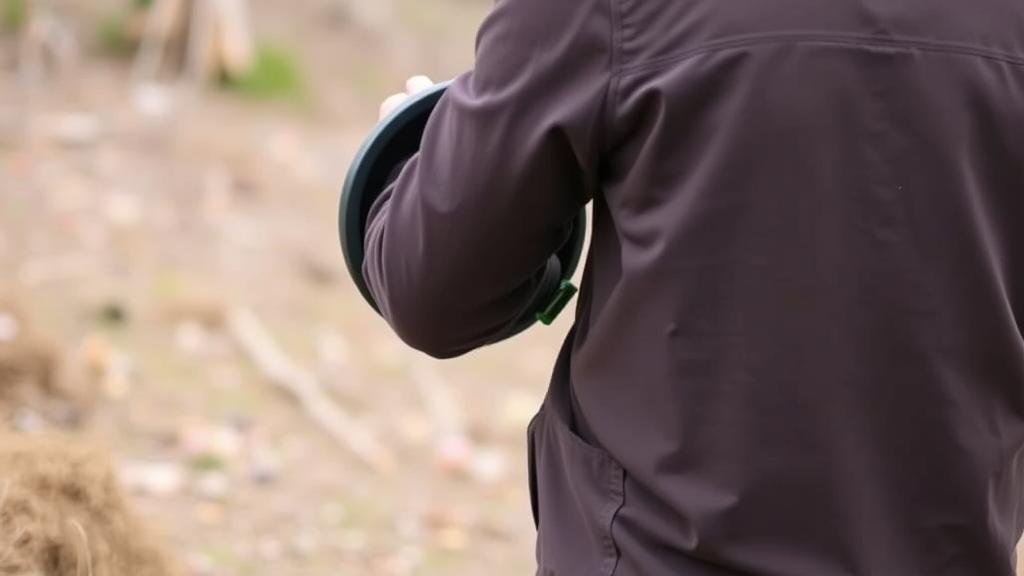The Importance of Respect and Etiquette in Metal Detecting
The Importance of Respect and Etiquette in Metal Detecting
Metal detecting is more than just a hobby; it is an activity deeply rooted in heritage, exploration, and community. As such, practitioners must adhere to principles of respect and etiquette that not only safeguard the environment but also uphold the integrity of the metal detecting community. This article aims to elucidate the significance of these principles, supported by relevant examples and data.
The Ethical Framework of Metal Detecting
Respect and etiquette in metal detecting begin with an understanding of ethical standards. e standards are designed to protect cultural heritage, local communities, and the natural environment. The following aspects underscore the necessity of maintaining an ethical framework in metal detecting:
- Respecting Landowner Rights: Always obtain permission before detecting on private property. Ignoring this can lead to legal repercussions and damage the relationship between metal detectorists and landowners. A case in point is the increasing number of incidents where detectorists have faced prosecution for trespassing.
- Preserving Heritage Sites: Detecting in archaeological or historically significant sites without proper approval can lead to irreversible damage. Organizations like the United Kingdom’s Portable Antiquities Scheme advocate for responsible detecting to ensure discoveries are cataloged and preserved.
Environmental Considerations
Metal detecting often takes place in natural settings such as beaches, parks, and forests. Detectorists must be conscious of their impact on these environments. Consider the following points:
- Minimizing Disturbance: Use tools that minimize soil disruption, ensuring that your detecting does not harm flora and fauna. For example, using a trowel rather than a shovel respects the surrounding ecosystem.
- Removing Litter: A respectful detectorist often leaves a location cleaner than they found it. Collecting litter not only helps the environment but also fosters goodwill with other hobbyists and the general public.
Community Interaction and Networking
The metal detecting community thrives on cooperation and respect among its members. Building a robust network depends heavily on etiquette. Key aspects include:
- Sharing Knowledge: Experienced detectorists should mentor newcomers, sharing techniques and local hunting tips. This creates a supportive environment that fosters growth within the hobby.
- Avoiding Conflict: In communal detecting events, respect others space and finds. Engaging in friendly competition while being considerate of fellow enthusiasts enhances the collective experience.
Legal Responsibilities and Regulations
Understanding the legal landscape surrounding metal detecting is paramount. Each region has its own regulations, and adhering to these laws reflects a detectorists commitment to respect. Consider the following:
- Reporting Finds: Many countries require detectorists to report significant items to authorities or relevant archaeological bodies. For example, in England and Wales, the Treasure Act mandates that any found object over a certain value must be reported.
- Understanding Local Laws: Familiarize yourself with the metal detecting laws in your area. Ignorance of the law is not an excuse, and violating regulations can result in hefty fines or even criminal charges.
Real-World Examples of Respect and Etiquette
Numerous instances highlight the positive impact of respect and etiquette in metal detecting. For example, the story of a detectorist in California who discovered a historic gold coin led to an agreement with local cultural institutions. By reporting the find, the coin was preserved for public display, enriching community heritage and demonstrating responsible relic recovery.
On the other hand, there are many cautionary tales. In 2020, a group of detectorists was banned from a popular detecting site after they left multiple holes and refuse scattered around the area. This incident serves as a reminder that poor etiquette can lead to stricter regulations and diminished opportunities for all enthusiasts.
Conclusion
Respect and etiquette are cornerstones of responsible metal detecting. By adhering to ethical principles, being environmentally conscious, fostering a collaborative community, and understanding legal responsibilities, detectorists can contribute positively to their surroundings and enhance their reputation within the hobby. As with any other community, the actions of an individual can significantly impact everyones experience. In summary, adopting respectful practices is not merely advisable; it is essential for the sustainability and enjoyment of metal detecting for future generations.


